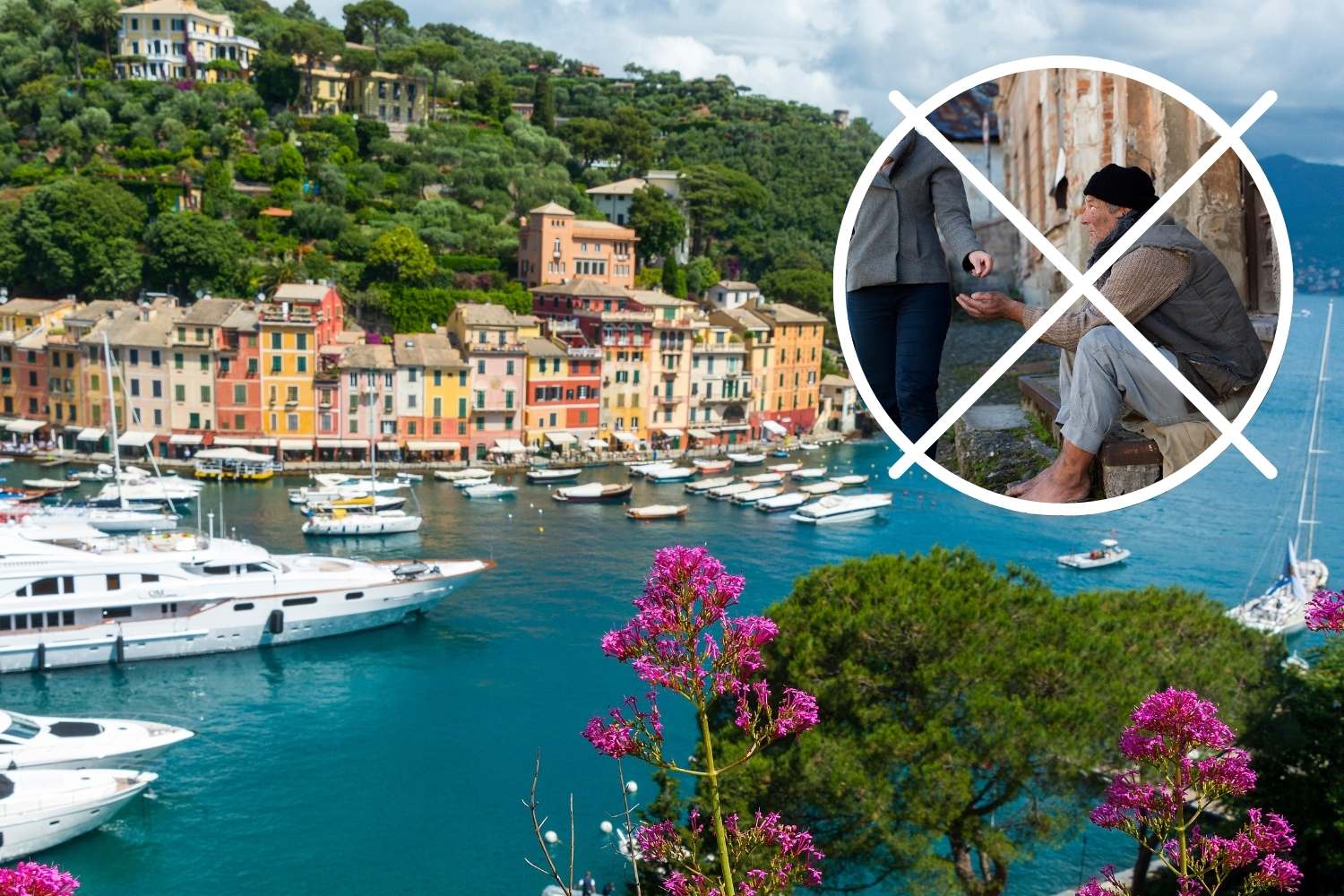Portofino’s new ordinance bans begging and curbside eating to preserve its elite image. But at what social cost?

@Canva
In Portofino, the Ligurian fishing village turned playground for the ultra-rich, a new set of local rules is drawing attention — and not for the reasons you’d expect from a quaint Mediterranean hotspot. The picturesque town has introduced a municipal ordinance that, among other things, bans begging (even if non-aggressive) and eating food while sitting on the ground. The measure, signed by Mayor Matteo Viacava, is effective through September 30 and aims to “preserve the exclusive tourist character” of the town.
Don’t ask, don’t eat (on the curb)
Under the new rules, anyone caught asking for money, even politely and without bothering anyone, can face a fine, especially in high-traffic areas like church steps, public parking lots, or along the main waterfront promenade, Umberto I Pier. It’s not about harassment — it’s about image.
And it doesn’t stop there. You might want to rethink that quick focaccia break on the cobblestones. The ordinance also prohibits sitting on sidewalks, stairs, benches, or directly on the street to eat, effectively banning the casual, impromptu meal. Why? Officials say they want to prevent Portofino from becoming an “open-air picnic zone” during the busy summer months.
Also on the no-go list: camping out with blankets, backpacks, and snacks, or lying down on public walls or sidewalks. The town wants to maintain a look that’s in line with its luxury brand — which, fair enough, when your clientele arrives by yacht.
Keep your shirt on (literally)
The crackdown on decorum extends to how people dress and move through the village. Walking around in a swimsuit, barefoot, or shirtless in the central streets is now forbidden. Noise must stop by 12:30 a.m. to avoid disturbing both locals and guests at the town’s lavish hotels. Violators face fines between €25 and €500 (roughly $27 to $540).
There’s a logic here — Portofino is small, exclusive, and built on a reputation. But there’s more to this story than just tidiness and peace.
Image over empathy?
The ordinance sends a clear message: Portofino wants to remain a postcard, pristine and perfectly curated. According to the mayor’s office, these rules are about protecting the “uniqueness of the territory” and maintaining an atmosphere of elegance and order. And to be fair, many of the provisions — like banning loud noise or discouraging shirtless tourists from parading through town — do seem rooted in common sense.
But the inclusion of non-aggressive begging in the same category as picnicking raises deeper, more troubling questions. We’re not just talking about tidying up the streets — we’re talking about the invisibility of poverty in places where it doesn’t “fit.”
Because while it might make sense to discourage tourists from turning the town square into a beach hangout, criminalizing those who are struggling to make ends meet — simply for existing in public spaces — feels like another level. It’s not about safety. It’s about aesthetic control. A form of urban planning that prioritizes surface over substance.
The underlying logic seems to be: if you hide the discomfort, you erase the problem. But pushing poverty to the margins doesn’t solve it — it just makes it easier to ignore.
Silence, curated
Portofino has long been the kind of place where silence speaks louder than words — the luxury is implied, the exclusivity understood. But curating a town like a boutique hotel comes with consequences. It might please the luxury travelers, but it risks stripping away the very humanity that gives a place its soul.
At a glance, the town remains beautiful. But beneath the surface, a question lingers: Can a postcard be too perfect to be real?
